- Home
- Kelley Armstrong
Ballgowns & Butterflies: A Stitch in Time Holiday Novella Page 11
Ballgowns & Butterflies: A Stitch in Time Holiday Novella Read online
Page 11
And where does that leave me? Does the woman in the mirror stay frozen forever, aging but unmoving? Subsisting and existing but never truly living? Alone and lonely, the exact fate I would never wish on August?
Is it time for me to move on? More than a year will pass before I’m ready to answer that question.
It is year four. My son has just turned five. My husband will turn forty soon. I myself have celebrated my thirty-first birthday. Time passes, and I stay still, and I am, in this very moment, facing that as I’ve never faced it before. I stand in my bakery, looking at a man who could be part of my future.
He could or he could not, and either seems equally likely. I do not know him that well. We may realize we are not compatible. Yet it isn’t about this man so much as it is about taking this step.
Eight words. “Would you like to go for tea later?” Even if nothing comes of it, by speaking the words, I am acknowledging that I may never return to August and Edmund.
The man—Noah—has no idea what I’m contemplating. He’s pretending to choose two macarons. For over a month now, at precisely one o’clock each afternoon, Noah stops to pick up macarons for his afternoon tea. I’m not even sure whether he eats them. The first time, when he’d come wanting sweets for his mother, he’d declared he wasn’t much for pastries himself. That, apparently, was before he tried my macarons.
They’re decent macarons. Not my finest pastries. The delicate almond cookies sandwiched with ganache are currently in vogue, and I do them well enough. My minuscule bakery in the Shambles has won awards for my cannelés and my jam tartlets, but the tourists want macarons, and apparently, so does Noah. He’s just never certain what flavor he wants on that day, which is an excuse to linger and chat with me, and I am fine with that because he is an excellent conversationalist.
Do his visits remind me of August’s wooing? Of how my husband wandered into my shop looking for a gift—for a lover, of course—and left nearly an hour later with a basket of pastries, none for his lover? Do I compare and contrast August’s visits with Noah’s and find the latter lacking? Excellent conversation, to be sure, but bereft of the charm, the spirit and the sheer overwhelming Augustness of August that finally won me over.
It is not the same. Nor do I want it to be. I look at Noah, a handsome divorced thirty-five-year-old with a steady office job and a good flat and a kind manner, and I know that if I’m to take this step, he is an excellent man to take it with. He is safe.
I will not say he is boring. I will not. On a scale of one to ten, with one being deathly dull, Noah rates a perfectly respectable seven. It’s not his fault that August was a twelve, and really, if I’m being clear eyed with myself, honestly remembering the tumult and heartache of our last year together, perhaps I would, in the long run, be happier with a seven. Just as August, if he has found new love, has hopefully found someone more conventional, able to placate his jealousy in a way I could not.
Noah leans over the counter, dark hair tumbling forward as he peers through the glass at the jewel-toned cookies below. “They’re all too good, Rosie. That’s the problem.”
“I should suggest one of each, but I’m a terrible salesperson.”
He smiles. “And as much as my stomach would love that, my waistline would not. You need to start offering only two types a day, so I don’t need to choose.”
“Is that what you’d like?” I say. “Grab two and be on your way?”
Rosalind Courtenay, are you flirting?
Yes, I am, and when Noah lifts his eyes to meet my dancing ones, his cheeks color. “No, I suppose that isn’t what I’d like at all.”
I wait for him to say more. He won’t. His gaze slips to the wedding band on my finger, and that is enough. He knows I claim widowhood, but as long as I wear that ring, he is respectful of my grief. If a step is to be made, I’m the one who must make it.
We speak instead of local politics and an upcoming festival where I will have a booth. I’m debating what to sell—in addition to macarons, of course—and I ask his advice, and we chat until a queue forms and my shop girl—ahem, sales associate—cuts me a look that politely begs for help. Noah sees it and chooses swiftly, as considerate as ever.
He’s barely out the door when I make my decision. I will ask him to tea. Today. Now.
I serve one quick customer and then apologize to my assistant and promise to be quick. Apron off, I’m out the back door, ducking down the narrow alley to intercept him.
He’s moving fast, his tall and lanky frame expertly weaving through tourists milling through the Shambles. Tourists. I owe them my success. As lauded as my pastries might be, it’s my key location and those tourists themselves who allow me to pay the rent on both my tiny shop and flat. And yet, well, I’d be lying if I didn’t admit there were times when I cursed them, muttering that the lack of tourist hordes was one thing definitely better about the nineteenth century.
With his height and his sharp suit, Noah easily cuts through the crowds. I’m a five-foot-tall, slight-figured blonde in a sundress. No one moves for me. No one even notices me. Well, yes, some men do, sadly, but not to move out of my way.
I’m weaving through the crowd when a child’s screech catches my attention. Children—particularly young ones and particularly happy ones—always have that effect on me. I’m like a pointer hearing a game bird. I stop whatever I’m doing as if that joyous cry might somehow come from my son.
This time, it’s not even a boy. It’s a girl of perhaps eighteen months. She’s spotted a bright-colored toy in a shop window and nearly launched herself out of her father’s arms, reaching for it. That makes me smile, even as a pang shoots through me.
I’m about to turn away when the father’s voice cuts through the surrounding burble of tourist chatter.
“Yes, yes, Amelia, that is a toy. A lovely toy, and we shall return for all the required closer examinations once your mother has shown me this magical bakery, which is apparently, even more magical than all the other bakeries she adores.”
The first thing to catch my ear is the name. Amelia. I’ve always liked that name. Then I notice the man’s tone. It’s oddly formal . . . and yet not. Almost a mockery of the speech of my own world, like an actor well-versed in older language, using it to humorous effect. Both of these, however, would not hold my attention if it were not for one more thing.
That voice.
I know that voice, and on hearing it, I turn slowly, my lips parting in a whispered, “William?”
While he’s facing the toy shop, his figure matches that of William Thorne. Dressed as I never saw Lord Thorne dressed, of course—in a casual shirt and trousers, with a zebra-striped baby bag over his shoulder—but he’s tall and broad shouldered with dark hair that curls at his neck nape. And the woman beside him, angled sideways from me?
I remember August’s words from that night in our stateroom.
I resolved not to tease him about his mysterious buxom brunette.
The woman with William is tall with chestnut-brown curls and a full figure. She’s also pregnant, and though I can’t see her face, her figure nudges at my mind. I’m chasing that nudge when she smacks her husband on the arm.
“If you’re going to mock my love of bakeries, William, perhaps you shouldn't bring treats to the flat every evening.”
“Mock? Did I mock? Never. I happily indulge your passion for pastries. I simply wish that if you were to discover the most magical of all magical bakeries, it could be located somewhere other than this.”
He turns to look meaningfully along the narrow cobbled road with its cutesy shops and gaggles of tourists. I have to smile as he shudders. His companion rolls her eyes, her response swallowed by passing college students in Harry Potter robes, shouting, “Expelliarmus!”
It is only then, as the students pass, that I realize William has turned. That I see his face, and that it is, beyond any doubt, his face. And the woman with him is his “girl” from the future.
The latter might seem wild c
onjecture. After all, buxom brunette is hardly an uncommon descriptor. Yet I see her face now, and I am, for a moment, back in twenty-first-century Thorne Manor.
I might have lived there for two months, but I’d never paid much attention to the house itself. I’d paid particularly little attention to the objects that make a house a home. The books on the shelves, the photos on the walls, the papers on the desk. Those were all reminders that I was trespassing on another’s property, invading another’s most private place. Yet when I see the woman’s face, I cannot deny that I’ve seen it before. An old photo at Thorne Manor, one of a young girl with her parents, all of them in modern dress.
This woman was once a girl with a connection to Thorne Manor. A relative of those who owned it in the present. That was how she met William, how she’d passed through time to spend a teenage summer with him.
More than that, I know her. Not the girl, but the woman. I see her face in full, and recognition strikes like lightning. She has come to my shop thrice in the past week. We’ve spoken on the last two occasions, but even on that first one, I’d noticed her.
I can picture her, standing in my shop, eyeing the pastry display, her daughter on one hip. I noticed her, not because she was beautiful or unusual. I noticed her because she was happy. A mother perhaps nearly a decade older than me with a baby on one hip and another in her belly. A mother glowing with contentment and joy. I saw her, and I’d retreated into the back. As I did, our eyes met, and hers widened, and I’d thought it was because she realized I was backing away.
When she came two days later, I made a point of serving her, shamed by my first reaction. She’d asked questions in an accent I’d mistaken for American. As we talked, I learned she was a history professor from Toronto, married to an Englishman. They had a summer house in North Yorkshire, but her husband was in York for a horse show, and they were spending the week at a holiday flat.
When she’d come by yesterday, I’d found myself smiling, happy for the excuse to chat. I even offered her my card and said the shop shipped throughout Yorkshire. We don’t ship anywhere, actually, but I’d felt the urge to reach out. I’ve come to realize I’ve omitted one very important part of a satisfying life: companionship. So I was seeking that, whether with this woman or with Noah. Baby steps toward a fuller life.
Now, seeing the woman with William, I know exactly why her eyes had widened that first day. Why she’d returned twice more and made a point of talking to me.
She knows who I am.
She has seen a portrait or photograph of me in my world. Her husband was August’s best friend. She would know his wife had vanished, and she might even know my former profession. One day, she walks into a bakery in York, and who does she see? She cannot believe her eyes, quite literally, and so she comes twice more, striking up conversations as she continues her assessment. When she has decided I am indeed Rosalind Courtenay, she brings William to confirm.
I watch them. Her face is turned up to William’s, his own countenance as joy-bright as hers. Tears spring to my eyes. I could not be happier for him. He is a dear friend and a good man, yet there has always been a shadow in him. Now it is lifted, and he glows with its leaving, and I want to run to him and throw my arms around his neck.
William. Dearest William. It is I. Rosalind.
Yet my feet do not move. I only stare, and that moment of joy on seeing him freezes in my gut as one tear trickles down my cheek.
William.
I want to run to you. Throw myself at you. Beg you and your lovely new wife for help. You are here, in my world, and you can take me home.
Tell me you can take me home.
What if you cannot? What if you are trapped here, too? Only for you, it would be a blessing. You have your wife. You have your daughter and another child on the way. You have your home and even your beloved horses. You will miss August dreadfully, but otherwise, there would be nothing tying you to that other world.
Even if William and his wife can move freely between worlds, that does not mean they can take me back. What would we do then? Have William return to tell August that I’m trapped forever in the future?
As I watch, William and his wife continue toward my bakery, and my feet remain rooted to the cobblestones. They are nearly past the alley when William half turns, frowning. My breath catches, but his gaze only slides across the shadows before he continues on.
I wait until they are gone, and then I run. It is time to go back to Thorne Manor. Back to that spot that brought me here, in the hope—the wild hope—that seeing William means I can finally return home.
About the Author
Kelley Armstrong believes experience is the best teacher, though she’s been told this shouldn’t apply to writing her murder scenes. To craft her books, she has studied aikido, archery and fencing. She sucks at all of them. She has also crawled through very shallow cave systems and climbed half a mountain before chickening out. She is however an expert coffee drinker and a true connoisseur of chocolate-chip cookies.
Visit her online:
www.KelleyArmstrong.com
[email protected]

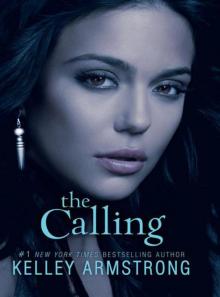 The Calling
The Calling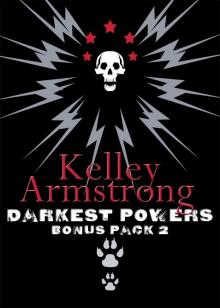 Darkest Powers Bonus Pack
Darkest Powers Bonus Pack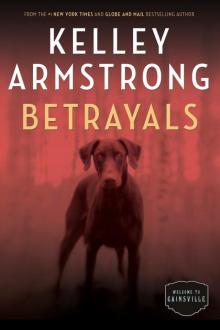 Betrayals
Betrayals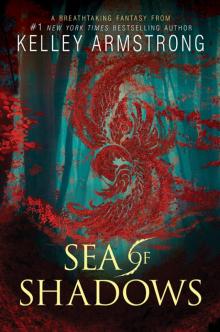 Sea of Shadows
Sea of Shadows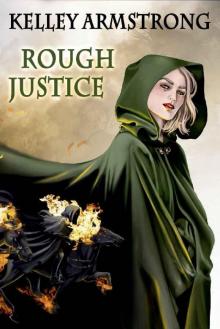 Rough Justice
Rough Justice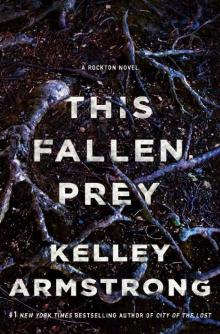 This Fallen Prey
This Fallen Prey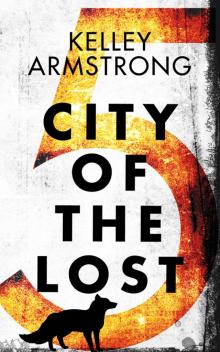 City of the Lost: Part Five
City of the Lost: Part Five Perfect Victim
Perfect Victim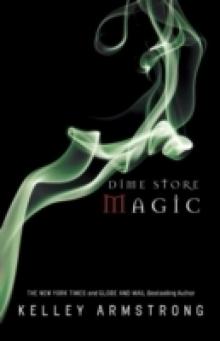 Dime Store Magic
Dime Store Magic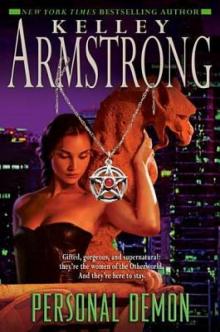 Personal Demon
Personal Demon Haunted
Haunted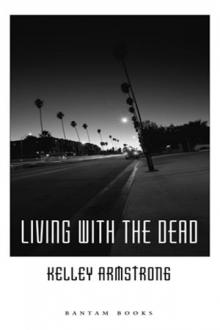 Living With the Dead
Living With the Dead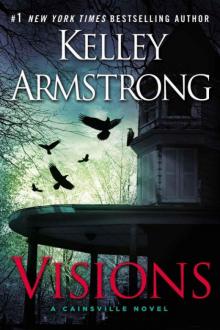 Visions
Visions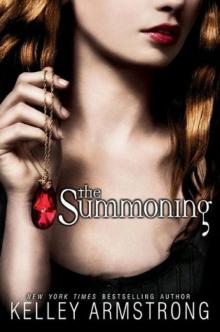 The Summoning
The Summoning Broken
Broken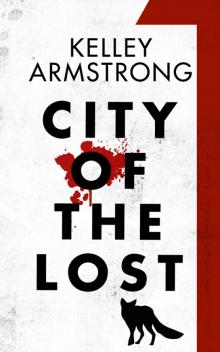 City of the Lost: Part One
City of the Lost: Part One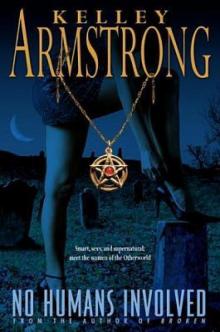 No Humans Involved
No Humans Involved The Awakening
The Awakening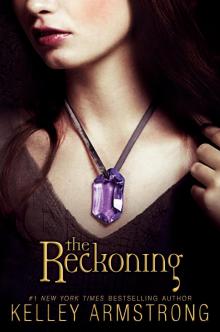 The Reckoning
The Reckoning The Gathering
The Gathering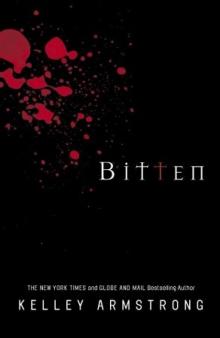 Bitten
Bitten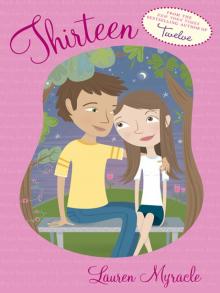 Thirteen
Thirteen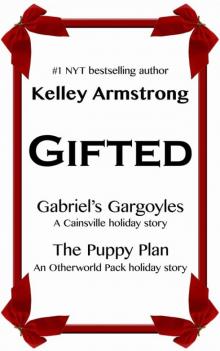 Gifted
Gifted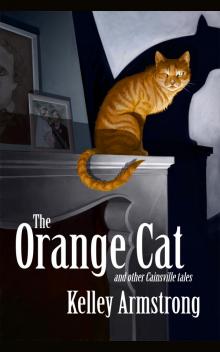 The Orange Cat and Other Cainsville Tales
The Orange Cat and Other Cainsville Tales Darkest Powers Bonus Pack 2
Darkest Powers Bonus Pack 2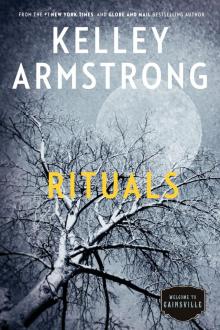 Rituals
Rituals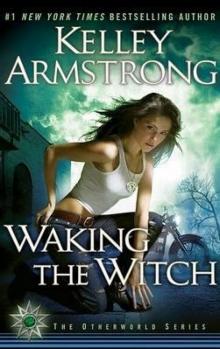 Waking the Witch
Waking the Witch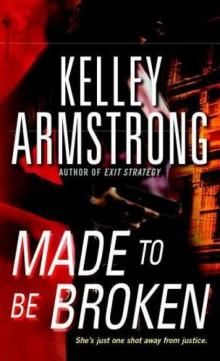 Made to Be Broken
Made to Be Broken Lost Souls
Lost Souls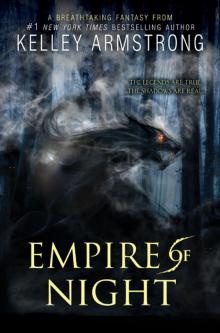 Empire of Night
Empire of Night Wild Justice
Wild Justice Double Play
Double Play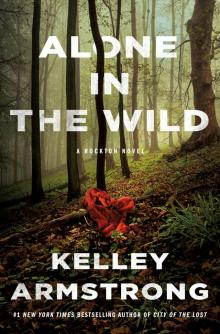 Alone in the Wild
Alone in the Wild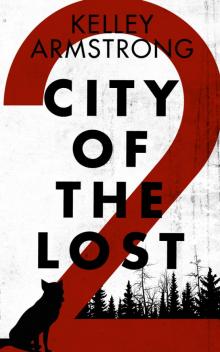 City of the Lost: Part Two
City of the Lost: Part Two A Stranger in Town
A Stranger in Town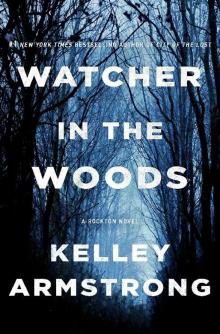 Watcher in the Woods: A Rockton Novel
Watcher in the Woods: A Rockton Novel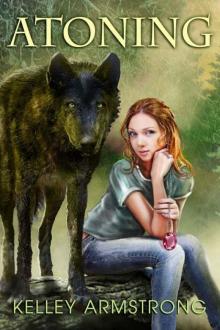 Atoning
Atoning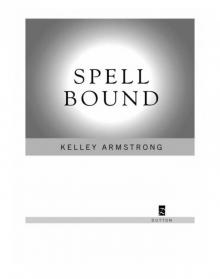 Spellbound
Spellbound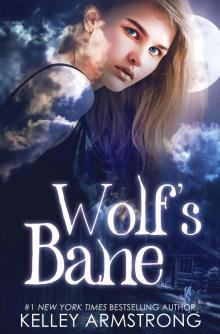 Wolf's Bane
Wolf's Bane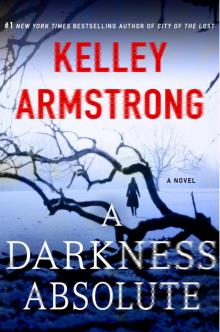 A Darkness Absolute
A Darkness Absolute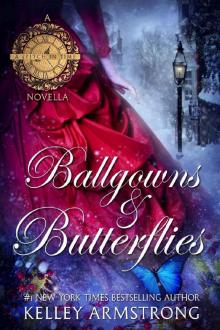 Ballgowns & Butterflies: A Stitch in Time Holiday Novella
Ballgowns & Butterflies: A Stitch in Time Holiday Novella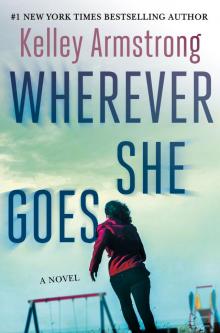 Wherever She Goes
Wherever She Goes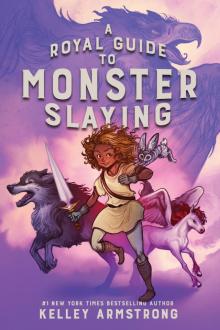 A Royal Guide to Monster Slaying
A Royal Guide to Monster Slaying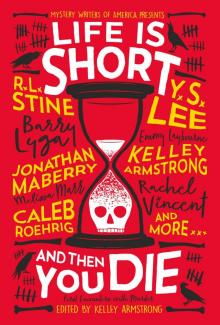 Life Is Short and Then You Die
Life Is Short and Then You Die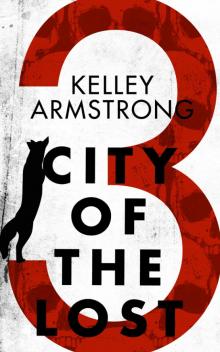 City of the Lost: Part Three
City of the Lost: Part Three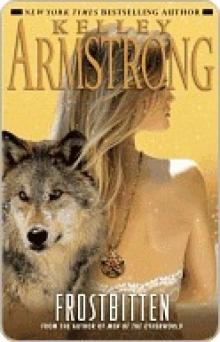 Frostbitten
Frostbitten A Stitch in Time
A Stitch in Time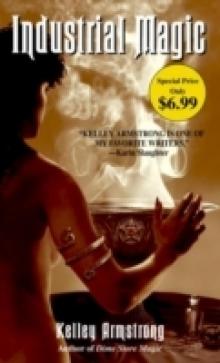 Industrial Magic
Industrial Magic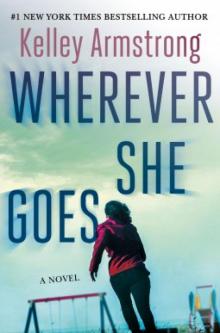 Wherever She Goes (ARC)
Wherever She Goes (ARC)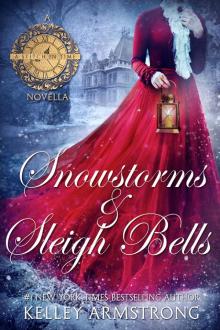 Snowstorms & Sleigh Bells: A Stitch in Time holiday novella
Snowstorms & Sleigh Bells: A Stitch in Time holiday novella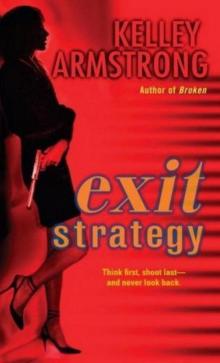 Exit Strategy
Exit Strategy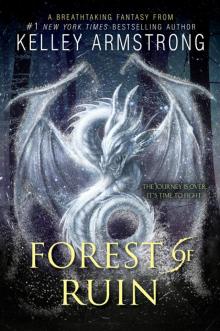 Forest of Ruin
Forest of Ruin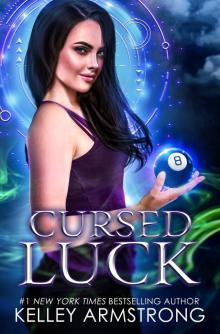 Cursed Luck, Book 1
Cursed Luck, Book 1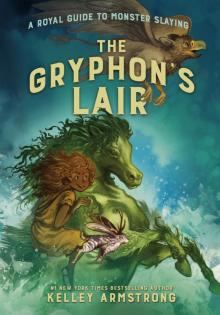 The Gryphon's Lair
The Gryphon's Lair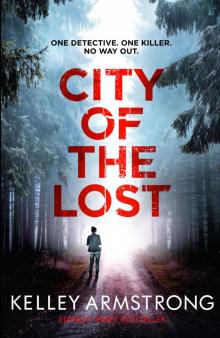 City of the Lost
City of the Lost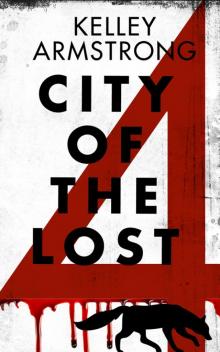 City of the Lost: Part Four
City of the Lost: Part Four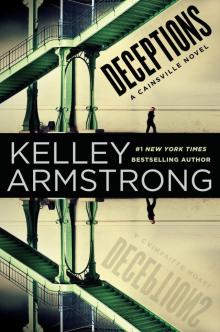 Deceptions
Deceptions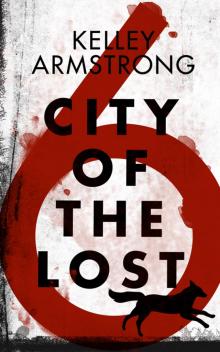 City of the Lost: Part Six
City of the Lost: Part Six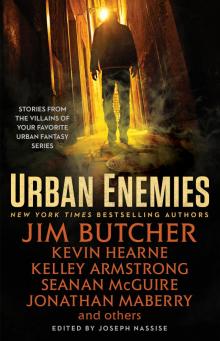 Urban Enemies
Urban Enemies Stolen
Stolen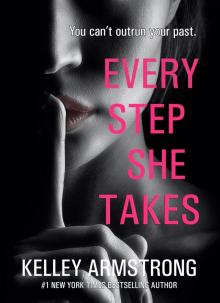 Every Step She Takes
Every Step She Takes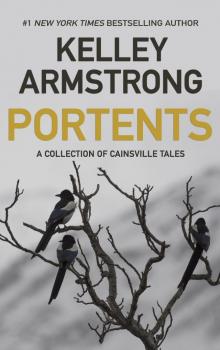 Portents
Portents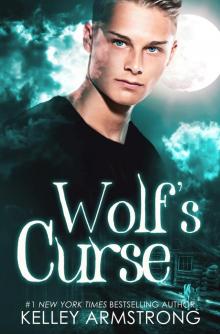 Wolf's Curse
Wolf's Curse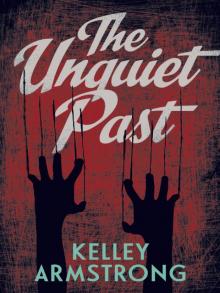 The Unquiet past
The Unquiet past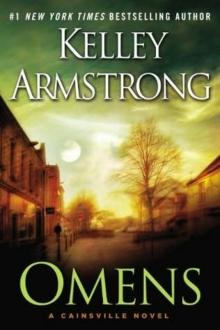 Omens ct-1
Omens ct-1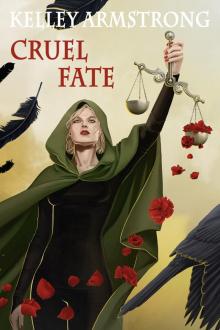 Cruel Fate
Cruel Fate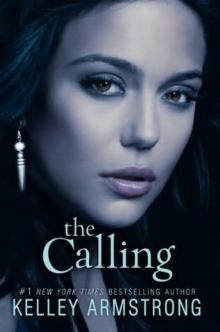 The Calling dr-2
The Calling dr-2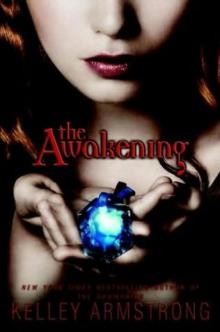 The Awakening dp-2
The Awakening dp-2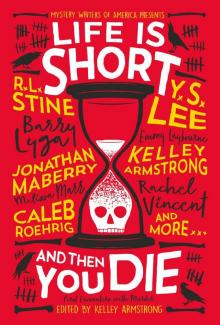 Life Is Short and Then You Die_First Encounters With Murder From Mystery Writers of America
Life Is Short and Then You Die_First Encounters With Murder From Mystery Writers of America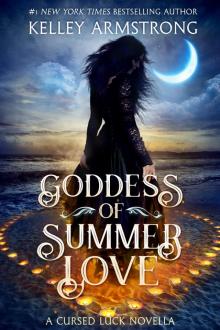 Goddess of Summer Love: a Cursed Luck novella
Goddess of Summer Love: a Cursed Luck novella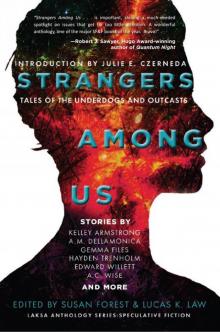 Strangers Among Us
Strangers Among Us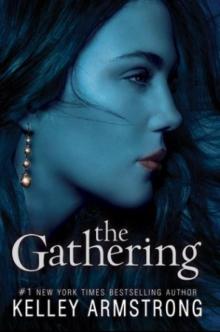 The Gathering dr-1
The Gathering dr-1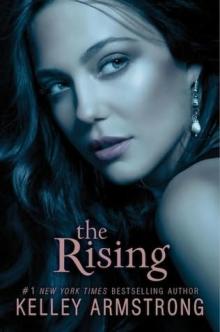 The Rising dr-3
The Rising dr-3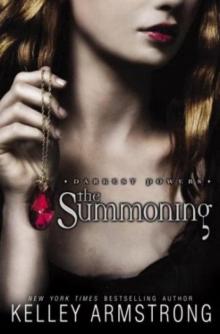 The Summoning dp-1
The Summoning dp-1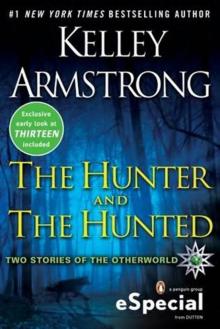 The Hunter And The Hunted
The Hunter And The Hunted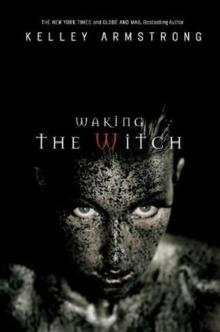 Waking the Witch woto-11
Waking the Witch woto-11